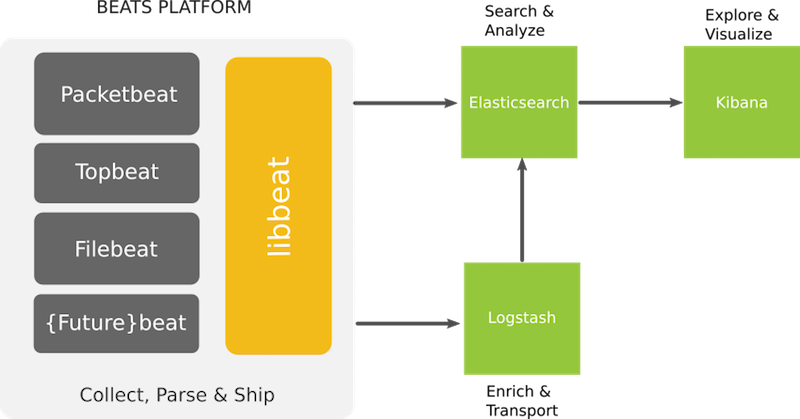WARNING: Version 1.1 of Beats has passed its EOL date.
This documentation is no longer being maintained and may be removed. If you are running this version, we strongly advise you to upgrade. For the latest information, see the current release documentation.
Beats overview
editBeats overview
editThe Beats are open source data shippers that you install as agents on your servers to send different types of operational data to Elasticsearch. Beats can send data directly to Elasticsearch or send it to Elasticsearch via Logstash, which you can use to enrich or archive the data.
Packetbeat, Topbeat, and Filebeat are a few examples of Beats. Packetbeat is a network packet analyzer that ships information about the transactions exchanged between your application servers. Topbeat is a server monitoring agent that periodically ships system-wide and per-process statistics from your servers. And Filebeat ships log files from your servers.

If you have a specific use case to solve, we encourage you to create your own Beat. We created an infrastructure to simplify the process. The libbeat library, written entirely in Golang, offers the API that all Beats use to ship data to Elasticsearch, configure the input options, implement logging, and more.